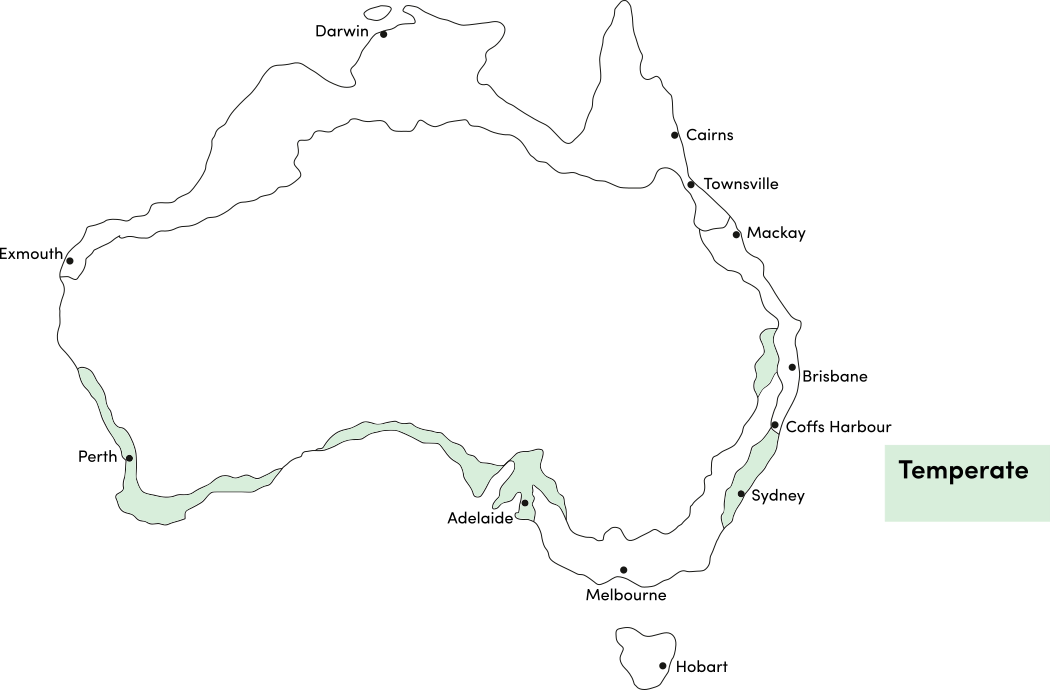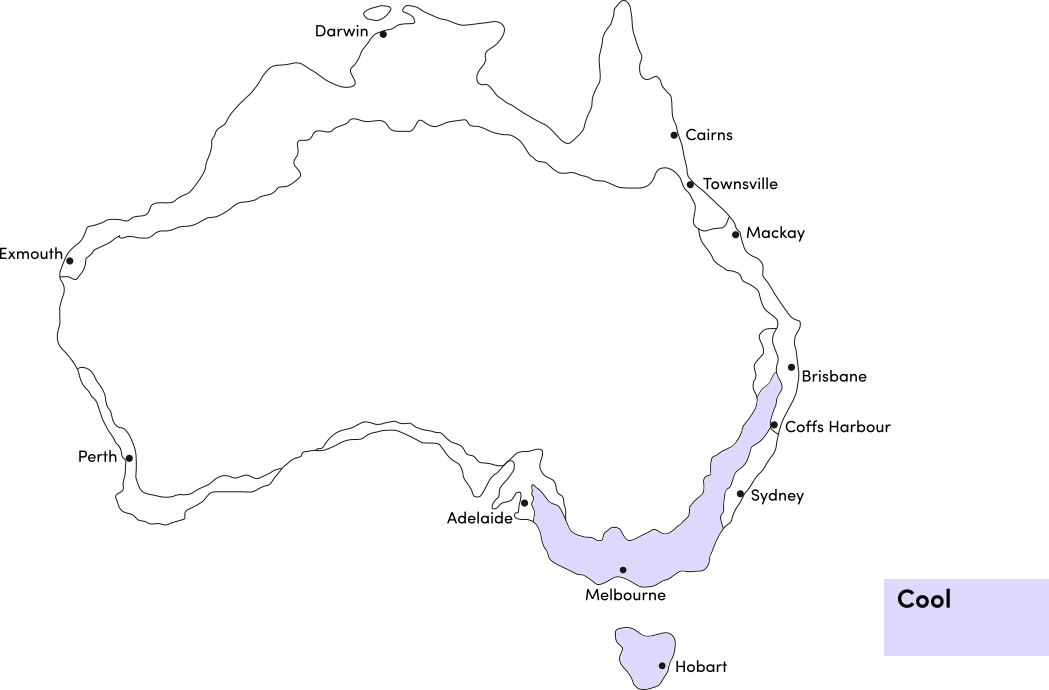
How to Grow Aquilegia Seeds
Grow Guide #2347
Family: Ranunculaceae
Binomial name: Aquilegia viridiflora
Life Cycle: Perennial
This 'How to Grow' guide details everything a home gardener needs to know to plant, grow and care for Aquilegia (Aquilegia viridiflora).
When to Sow Aquilegia Seeds
Aquilegia is a perennial plant that grows year round in most climates. Use the table below to identify the best time of year to sow aquilegia seeds in your climate.
| JAN | FEB | MAR | APR | MAY | JUN | JUL | AUG | SEP | OCT | NOV | DEC | |
|---|---|---|---|---|---|---|---|---|---|---|---|---|
| Cool | ||||||||||||
| Temperate | ||||||||||||
| Sub-Tropical | ||||||||||||
| Tropical | ||||||||||||
| Arid |
Preparation
Aquilegia plants are short-lived perennials, meaning they usually live for between two and five years. Choose a permanent position where plants can grow undisturbed by regular digging or disturbance.
Aquilegia plants are best grown in full sun or part shade. Choose a location that will receive at least 3 hours of full sun each day.
Aquilegia plants need a well drained soil enriched with plenty of organic matter. Prepare soil by weeding it thoroughly, digging it over to loosen it and adding aged animal manure or compost. Keep the area free of weeds until planting. Learn more about preparing soil for planting here.
Aquilegia plants can be grown in containers. If possible choose a variety that’s recommended for container growing. Use a good quality potting mix and make sure your container is large enough for mature plants; a minimum of 10 litres is recommended for aquilegia. During the growing season, keep in mind that container grown plants may need additional fertiliser to encourage healthy growth.
How to Sow Aquilegia Seeds
Aquilegia seeds do not require any treatment (eg soaking, stratification) before sowing.
Aquilegia seeds grow best when they are raised in trays or other containers and transplanted to the garden once established.
- Fill trays, punnets or jiffy pots with a good quality seed-raising mix, or use soil starter pellets.
- Sow seeds 3mm deep.
- Keep soil moist but never wet or dry.
- Seeds should germinate in around 21-28 days at a soil temperature of 20-25°C.
- Transplant seedlings to the garden once they have their first true leaves and are large enough to handle (usually 5-10cm tall).
- Plant out, spacing plants 40cm apart.
Tip: Seeds of this variety can be slow to germinate. Take note of the expected germination time, be patient and follow the recommended depth and temperature guidelines closely for the best chance of success.
How to Grow Aquilegia
Aquilegia plants need regular watering during the growing season. Do not let soil dry out; keep soil evenly moist but not waterlogged. Water deeply in the early morning or late afternoon. Avoid watering the leaves of plants to avoid fungal diseases. Learn more about watering here.
If soil was well prepared no extra fertiliser should be necessary. In poor soil or to give your plants an extra boost, application of a high-potassium fertiliser or one formulated for flowering plants can be beneficial:
- Apply slow release fertiliser at the recommended rate when transplanting or when seedlings are 5-10cm tall.
- Apply liquid fertiliser at the recommended rate and frequency while plants are fruiting or flowering.
Aquilegia plants should flower in approximately 200 days.
Deadhead aquilegia flowers regularly during the growing season. Using sharp secateurs or snips cut fading or dead flowers off just above a set of leaves. Removing old flowers regularly will encourage plants to produce more flowers. Learn more about deadheading flowering plants here.
When plants have finished flowering prune them back to neaten them and encourage strong new growth. Using sharp secateurs or snips, cut individual stems just above a set of lower leaves.
Common Problems when Growing Aquilegia
Like all plants, aquilegia is susceptible to some pests, diseases and other problems. Below is a list of the most common problems gardeners encounter when growing aquilegia plants:
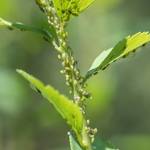 Aphids are small (2-4mm long) sap-sucking insects that congregate on the new shoots or the undersides of leaves. They can cause leaves to wilt or become discoloured, and also excrete honeydew which can attract ants and other insect pests. To manage aphids, remove them by spraying with a garden hose, apply a soap or alcohol spray, or encourage predatory insects to your garden. Read more about aphids here.
Aphids are small (2-4mm long) sap-sucking insects that congregate on the new shoots or the undersides of leaves. They can cause leaves to wilt or become discoloured, and also excrete honeydew which can attract ants and other insect pests. To manage aphids, remove them by spraying with a garden hose, apply a soap or alcohol spray, or encourage predatory insects to your garden. Read more about aphids here. Armyworms, cutworms and other caterpillars can all eat the buds or flowers. Young caterpillars burrow into the buds, eating the petals so flowers do not open properly, or consuming the seeds once the flower has matured. Monitor plants and remove any caterpillars you see. If necessary use insect exclusion netting to physically protect the plant, or spray with Dipel.
Armyworms, cutworms and other caterpillars can all eat the buds or flowers. Young caterpillars burrow into the buds, eating the petals so flowers do not open properly, or consuming the seeds once the flower has matured. Monitor plants and remove any caterpillars you see. If necessary use insect exclusion netting to physically protect the plant, or spray with Dipel.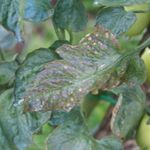 Downy mildew is a fungal disease that causes yellow to grey-brown patches on leaves, especially the undersides. Water plants at soil level (not on the leaves), remove and destroy affected leaves and do not overcrowd plants to ensure adequate air flow. If problems persist, spray with a homemade milk spray or fungicide.
Downy mildew is a fungal disease that causes yellow to grey-brown patches on leaves, especially the undersides. Water plants at soil level (not on the leaves), remove and destroy affected leaves and do not overcrowd plants to ensure adequate air flow. If problems persist, spray with a homemade milk spray or fungicide..jpg) Powdery mildew is caused by fungal spores reproducing on the leaves of plants. First showing as white spots on leaves, affected areas can spread quickly to cover the entire leaf surface. While rarely fatal, powdery mildew can reduce yields. Water plants at soil level (not on leaves) to prevent spreading spores, allow good air flow between plants, remove affected leaves and if necessary spray with an appropriate fungicide or homemade spray. Read more here about powdery mildew here.
Powdery mildew is caused by fungal spores reproducing on the leaves of plants. First showing as white spots on leaves, affected areas can spread quickly to cover the entire leaf surface. While rarely fatal, powdery mildew can reduce yields. Water plants at soil level (not on leaves) to prevent spreading spores, allow good air flow between plants, remove affected leaves and if necessary spray with an appropriate fungicide or homemade spray. Read more here about powdery mildew here.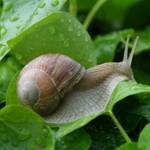 Slugs and snails are molluscs that feed on tender leaves and shoots, mostly at night, leaving slimy trails behind them. Control them by removing their hiding places, keeping free range poultry, collecting them by torchlight or by placing traps. Read more about slugs and snails here.
Slugs and snails are molluscs that feed on tender leaves and shoots, mostly at night, leaving slimy trails behind them. Control them by removing their hiding places, keeping free range poultry, collecting them by torchlight or by placing traps. Read more about slugs and snails here.
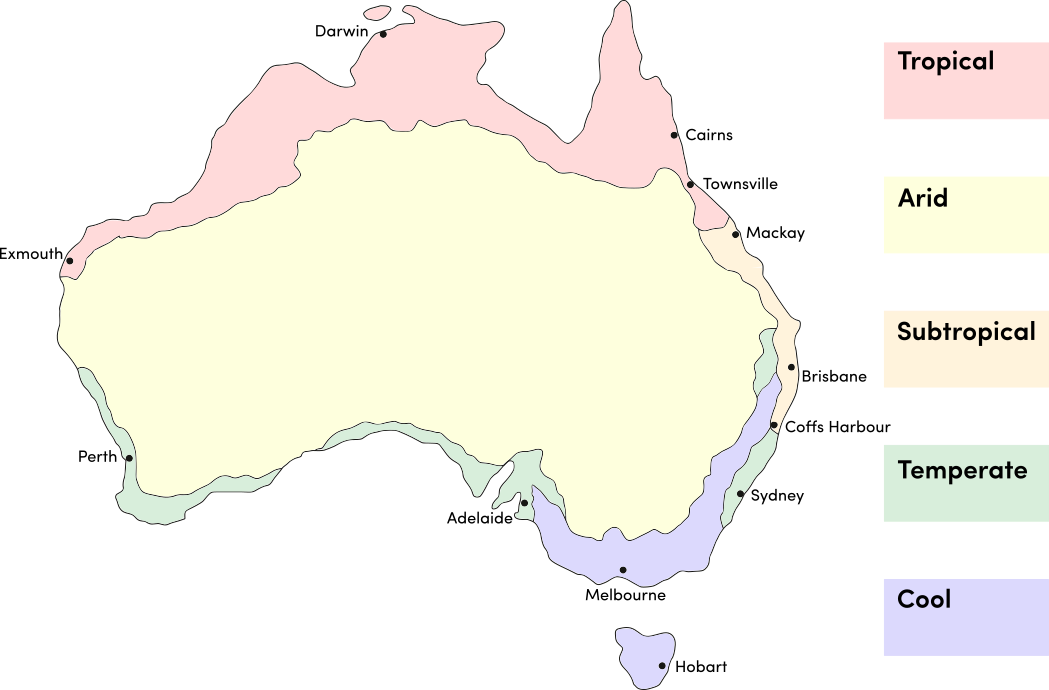
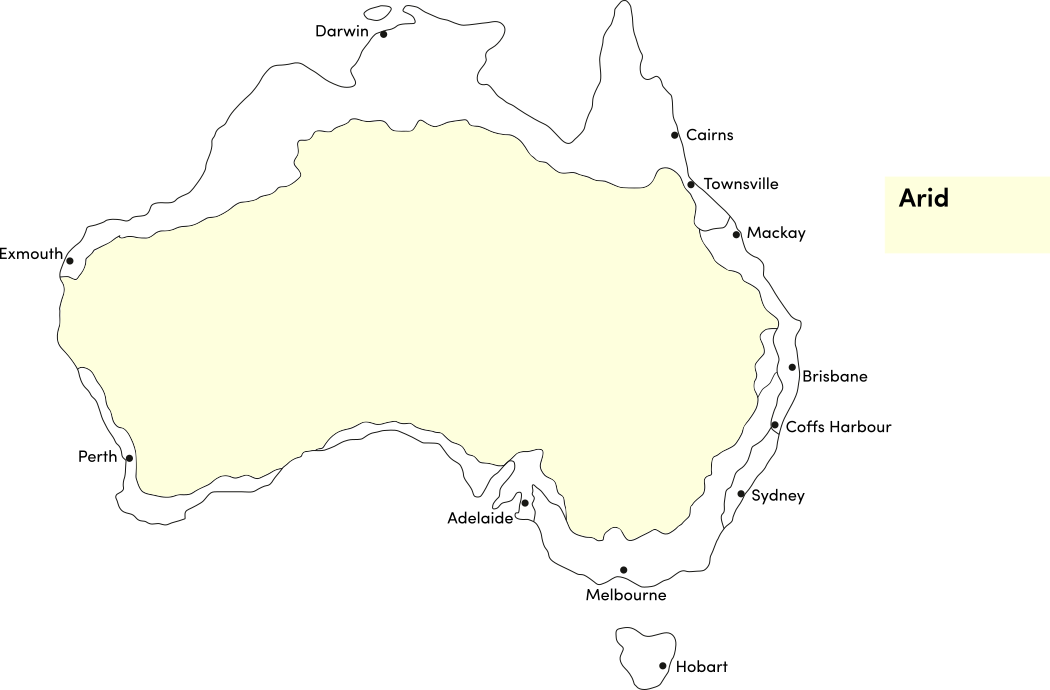
.png)

